Going against the Stream: Abbas Kiarostami
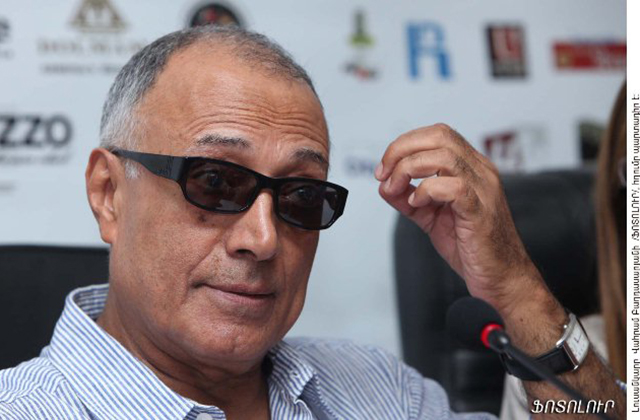
Iranian film director, screenwriter and film producer, winner of Palme d’Or at the Cannes Film Festival Abbas Kiarostami has died aged 76. According to BBC, he had been undergoing hospital treatment in France for cancer. The film director won the top prize at Cannes, with his 1997 film “Taste of Cherry.” It was a minimalist film about a man looking for someone to bury him after his suicide. It examined Iranian civic and religious attitudes of the time. He entered the world of cinema from painting and graphic design. Despite the political atmosphere in Iran after the Islamic Revolution, he didn’t leave the country. Kiarostami was hugely influential in world cinema. His movies are original, have the simplest plot, were always produced with a modest budget, however, they are masterpieces, as he didn’t imitate others and created his film with a language typical only to him.
In 2005 the film producer was the honorary guest of “Golden Apricot” International Film Festival. World-famous film director Abbas Kiarostami, who didn’t give any interview throughout the last 35 years, gave a diplomatic reply to the journalist of “168 Hours” (168.am), “The festival is neither weak, nor small and needs attention. We all have one or two Armenian friends in Iran. Now, of course, after the revolution, the number of Armenians has decreased, however, I’m impressed by Armenian culture. For the first time I saw that they eat with a knife and fork in the house of my Armenian friend.”
A.Kiarostami approaches inner world of a human being with great responsibility and sensitivity, watching his movies requires work. The subtle master of intellectual film considers that American movie leaves its negative influence on everyone. “If you decide to make a movie in Iran, based on Hollywood standards, you’ll find sponsors. It’s difficult to go against the stream. My audience comprises people, who are able to watch my films until the end, even if they don’t like me,” the film director said during his visit to Armenia. Iranian film directors install film censorship inside them and do restrictions from the very start of the film. “Censorship is the wall, over which it’s necessary to jump,” he said. Within “Golden Apricot” film by A.Kiarostami “Ten” was screened and exhibition of his photo installations was launched.
Below is introduced the conversation of correspondent of “168 Hours” (168.am) Nune Hakhverdyan with Abbas Kiarostami in July 2005.
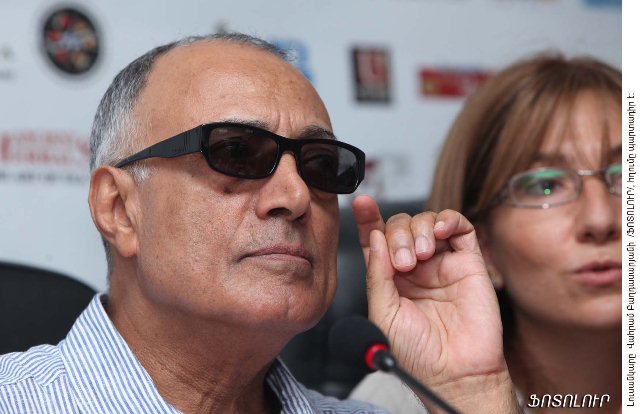
I leave space to ponder
Famous Iranian film director Abbas Kiarostami was the honorary guest of “Golden Apricot” International Film Festival. Throughout recent years Persian movie recorded rapid development, was recognized all over the world and stands on a firm ground. Due to Kiarostami’s films the world saw a fresh movie glance. Plots of his movies may be easily and quickly retold. His slow and beautiful movies invite for a dialogue.
“Where is your friends home?” tells a deceptively simple account of a conscientious schoolboy’s quest to return his friend’s notebook in a neighboring village, since, should his friend fail to hand it in the next day, it is likely he will get expelled. Hence, this film has been seen as a metaphor for the sense of civic duty, about loyalty and everyday heroics. “Taste of cherry” is about a man who drives through a city suburb looking for someone who can carry out the task of burying him after he has died. The young man thinks of death, and the film director—of life.
“Ten” is a docuficion, the camera is fixed and depicts a conversation between an unchanging female driver and a variety of passengers as she drives. Her passengers include her young son, her sister, a bride, a prostitute, and a woman on her way to prayer. This low-budget movie is a piece of masterpiece. It attaches attention not by its plot, but by emotional density. Uncatchable human emotions are interesting to Kiarostami, which are out of logical control. Life goes on and becomes an endless story. The film ends, people continue living. And surprise with theirs longing for integrity and perfection.
– The idea of a hero disappears from the film. Some spectators may reveal a hero by watching my films. Different people find different heroes. My movie characters are ordinary people, who appear in specific situations. The situation makes them heroes.
– Do you think we are all heroes?
– Sure, otherwise I wouldn’t have made films. Ordinary people see their lives in my films, within the cadre. Every person is the hero of his life. Everyone choses his own way. Real heroes are people living non-heroic lives. We seek for heroes due to our fantasy and short-mindedness and screen them. Throughout years we stopped seeing and understanding people surrounding us. Film is flooded with words and images. I do the contrary: I leave space to ponder.
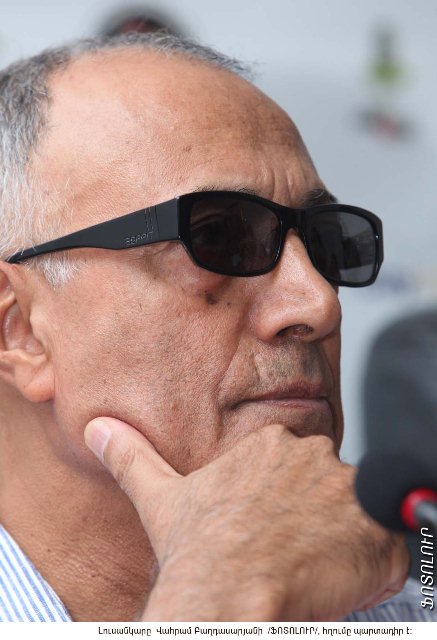
– The heroine in “Ten” needs changes, however, she seems not to dare change anything in her life.
– She doesn’t change anything in her life, as only history of 1.5 hour is being told. But it doesn’t mean, that she won’t change after the film. She may take sharp steps after that part of the film. But she also may not. Every spectator sees what he wants. Not only that woman is important, but the general way, which it’ll open for the spectator. If the spectator doesn’t see a different way, film characters turn into fake figures. Every person should see the possibility for change in himself.
– Is a person free in his choice? Is he able to change his own life?
– In fact, a person is unable to change anything. However, even if he can’t, he’d better believe that he can. I want to cite words by my favorite existentialists, which maybe are exaggerated and even inhumane, “If a person is born crippled and is not able to be the first in a 100 meter race, it’s only his guilt.” There is exaggeration in these words, however, the idea works for us; one should believe, that it’s true. He’d better think that way. The easiest way to get along with the situation is blaming others. Surely, chances are given in life, undoubtedly the notion of fortune, influence of the environment are existent, but it’d be better to believe that we are owners of our destiny.
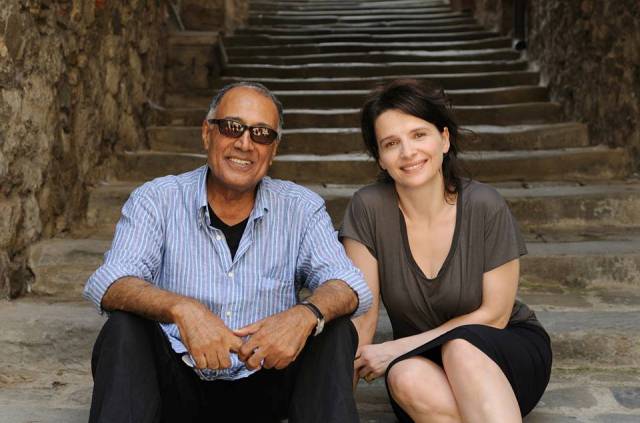
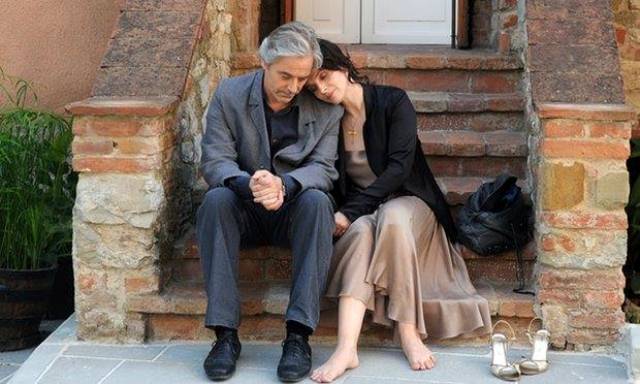
– May bridges be established between Islamic and Christian cultures?
– I think, if we don’t ruin bridges of human relations, which have existed long ago, there won’t be any need for new bridges. The bond already exists. Throughout whole my life I socialized with my Armenian friends, without thinking that I need to create any special bridge. Special steps shouldn’t be taken to socialize. The idea of broken bridge is introduced and speculated by political figures. It’s favorable for them to think that Christians and Muslims are in opposing armies. People benefit from reconciliation and unity, and politicians, juts the contrary, intend to break those ties
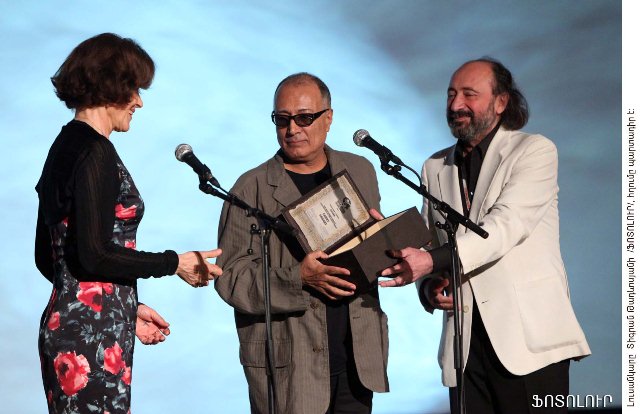
– Don’t traditions obstacle to this?
– No, without considerable efforts people overcome those difficulties. If people accept that in making a decision they shouldn’t ask for advice from elderly, who keep to traditions, and communication will succeed. Every person decides for himself whether he needs that or not. If not the power of elders, people won’t be afraid and will more easily make a choice. Children of different neighbors playing in the yard or on stairs don’t observe any national or religious difference. Parents then explain to them essence and difference of those notions.
– “Taste of cherry” won the Palme d’Or in 1997 and made Iranian film famous. Can any Armenian film develop Armenian film production by winning a prize?
– Parajanov, for instance, never wanted to become famous. He simply made films, loyal to himself. And he gained world fame without any prize. The prize may help, but it can’t have decisive importance. Every person should strive to be strong. If he’s strong, he’ll make good films. And people, naturally, will get interested in good films. It’s important to be original, if you imitate others you won’t reach success and won’t be considered original. If political figures don’t interfere and give advice, an interesting Armenian film for abroad may be made.
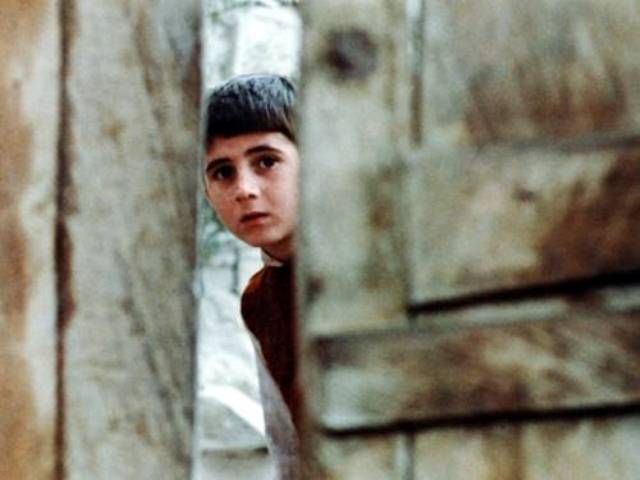
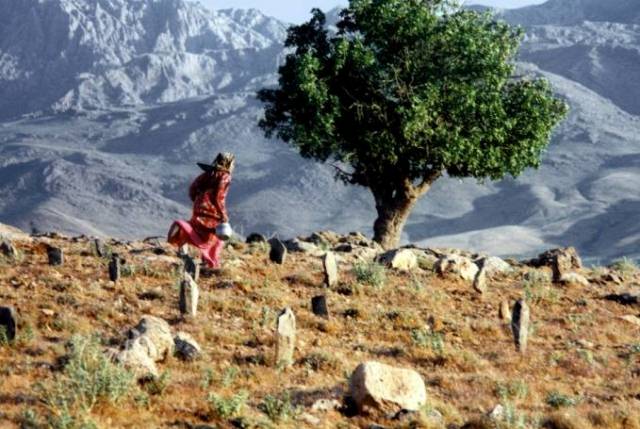
– Did you feel political pressure?
– My films don’t undergo political pressure. Of course, there is strict review in Iran, however, I’m not a film director, who makes a political film. Many blamed me for they didn’t understand me, but I don’t pursue political goals in my films. I’m against ideology, as I consider that nobody ever created a medicament to save the humanity. They are prescribed by prophets and politicians. And only they know how to save the world. Artists aren’t saviors, however, they only pronounce their ideas loudly.
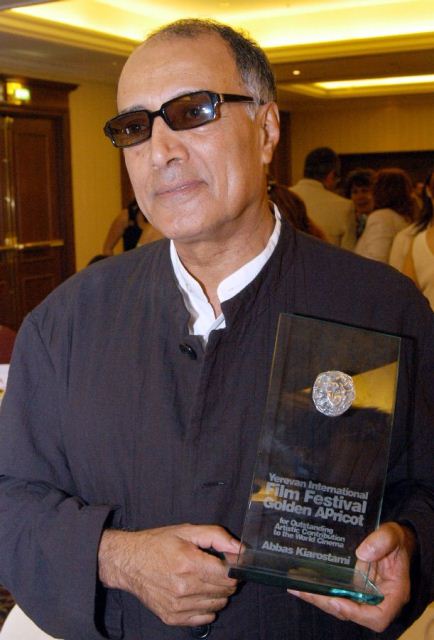
– Do those ideas help us to be saved from isolation?
– If I try to be realistic, I must say yes, but at a rather high price.
P.S. Kiarostami introduced his photos in Yerevan, which after the Festival were donated to the Parajanov Museum. It’s a big and very beautiful present to our city. “Photo is a simple and still producing. When I look to nature I see landscapes in a frame. Seeking for a cadre is incessant work,” he said. As Kiarostami said, he’s rather stingy and rarely gives presents, however, he decided to give a present to thank Yerevan. And the city, in its turn, granted him a commemorative medal.
By Nune Hakhverdyan

























